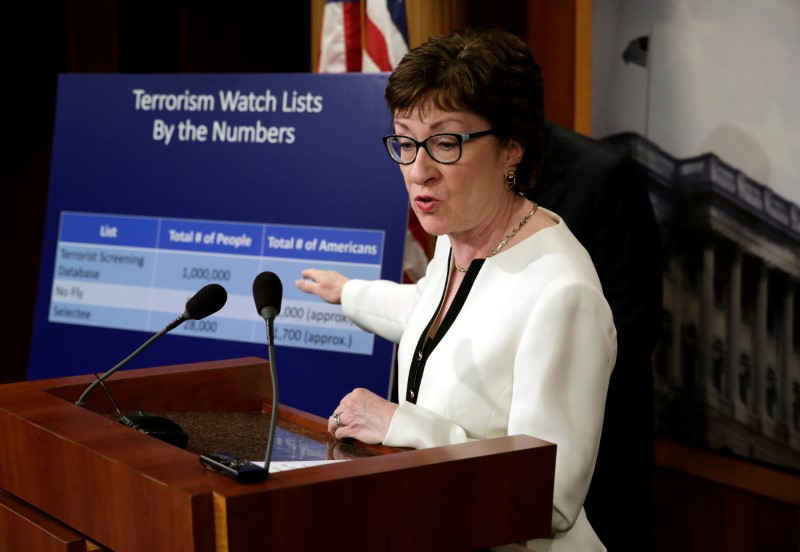By Susan Cornwell
WASHINGTON (Reuters) - Two Republican senators said on Monday that U.S. states should be allowed to stay in the Obamacare healthcare insurance program if they like, with one adding she felt confused by President Donald Trump's broad but unspecific executive order targeting the program.
Trump and congressional Republicans campaigned on a promise to dismantle Obamacare, and they are working on carrying out that pledge as an early product of united Republican control of the White House and Congress.
But the legislative proposal by Senators Susan Collins of Maine and Bill Cassidy of Louisiana would let states choose to keep Obamacare or move to a replacement program, for which states would also receive some federal funding.
Cassidy, himself a doctor, said such an approach could help attract Democratic votes that will be needed for the eventual replacement for Obamacare, former Democratic President Barack Obama's health insurance program approved in 2010. It did not, however, win over the Senate's leading Democrat, Chuck Schumer, who denounced the idea as an "empty facade."
Collins, a moderate Republican, called Trump's executive order issued Friday against Obamacare "very confusing," adding that whatever actions the Trump administration takes, legislation will still be needed to replace the health insurance law.
"We really don't know yet what the impact (of the order) will be," Collins told a news conference, adding that it will be difficult to assess the impact until there is a new Cabinet secretary in place in charge of health.
Trump signed his executive order on Friday within hours of taking office. It directs U.S. agencies to "waive, defer, grant exemptions from, or delay the implementation" of provisions of Obamacare deemed to impose fiscal burdens on states, companies or individuals.
But the order did not specify which parts of Obamacare would be affected or the timing.
Trump's nominee to head the U.S. Department of Health and Human Services, Georgia Representative Tom Price, has said there is no plan for "pulling the rug out" on millions of Americans' healthcare as a replacement is designed. Any changes are unlikely to affect the government-funded or subsidized insurance plans covering more than 20 million people in 2017.
Schumer said in a statement that the Collins-Cassidy approach would be a "far cry" from a full replacement of Obamacare.

"It is nearly impossible to keep the benefits of the Affordable Care Act," Schumer said, using the official name for Obamacare, "without keeping the whole thing."